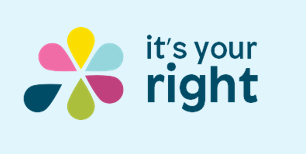You are here:
Children’s rights
All children under the age of 18 have rights. Rights are a list of promises to children and young people to keep them safe and to help them reach their potential. They are used to make sure that children and young people are treated fairly and are looked after properly.
What rights do children have?
 Children have many different rights. For example:
Children have many different rights. For example:
- A child’s best interests must always come first.
- A child has the right to life, survival and development.
- A child’s view must be taken into consideration in all matters affecting them.
If you're a child, parent or educator, have a look at It's Your Right. You will find lots of information, videos and pictures about children's rights for ages 4-17 and a game called 'Rights Runner' to test what you know about children's rights!
List of children’s rights - UNCRC
Resources
For Young People
We hope that our website is accessible to people of all ages looking for information on children’s rights or making complaints. We have put together the information most young people want when they visit our site.
Workshops and seminars
We deliver workshops on children’s rights to children and young people, and we give seminars for 3rd level students. Given the current Covid-19 restrictions, our workshops and webinars are currently being held online.
Education materials
Access resources for educators and professionals; lesson plans, posters on children’s rights, virtual video workshops and accompanying worksheets, and ItsYourRight - our website for young people.
Child Talks 2022 Resourses
Child Talks is an annual event from the Ombudsman for Children’s Office to mark World Children’s Day that hears directly from children and young people about the issues that matter to them.
Policy and research
We give advice to the Government and others about individual laws, policies and decisions that affect children.
The UN Convention on the Rights of the Child (UNCRC)
The UNCRC is a list of rights that every child and young person under the age of 18 has. The OCO is guided by the UNCRC.
OCO hearing the views of children and young people
Part of our role is to listen to and consult with children and young people about issues that concern them.
